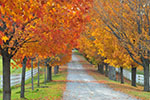Have you considered video taping your sleeping over several or more nights to SEE exactly what you are doing or not doing? You can do this with various camcorders that have low light capability, some even infra red, or you can use a simple web cam tied into a computer and use a night light, or you can use a surveillance camera, which can also tie in to a computer and record your time in bed onto a hard drive. Surveillance cameras with good IR vision are a lot lower in price than video cameras (but not as good resolution but more than good enough) and so you won't have to sleep with room lights on, as you might have to with a less expensive web cam or a more expensive video camera. Here is one such system that use IR and with no wires to trip over and it's pretty inexpensive for all that it can do.
http://www.amazon.com/Uniden-UDW10003-W ... 201&sr=8-6
I've had success with APAP/CPAP but I was often still tired and my numbers were up and down and it took me quite a while to figure out what might be going on. Eventually I figured out that even with APAP, over quite a narrow or wide range of pressures, I still had apneas and then figured out that it was due to the sleeping position of my head and not just my body. If my head position is on or nearly turned to the back on the pillow, then apneas occur. And if the pressure goes up, I get more Centrals recorded and more Hypopneas, and again I feel tired. If i had video taped myself I believe that I would have seen this problem years ago. I'm now working on ways to keep my head from turning onto the back and it's working very well. I've still got a few small problems with mask leaks when I do want to turn my head / body but I've had some really good days and overall better than with just PAP alone to try and deal with the apneas.
My surveillance camera system should be here in the next few days and I'll be recording my sleep ASAP and then studying the video with great interest.
Perhaps positional apneas are "part" of your apneas or like me, they could be a huge part. Either way, it could be worth investigating and you won't know until you study your own sleep over enough nights to be be certain of what are or are not problems. Otherwise, it seems to me that you and we all are, just guessing at what might be going on in your situation. I've found that I don't need that much disrupted sleep from apneas, hypopneas or centrals or snores or runs, to end up feeling tired. IF I was satisfied with a "standard" acceptance AHI of 5, I'd be a zombie. For me, it seems that sleeping on my back is the main problem for increased apneas and fatigue.
Good luck.
I MUST stay off my back to reduce OSA & snoring. I use a small backpack of solid styrofoam to keep me on my side (tennis balls too small), & use DIY customized soft foam pillow to keep my head in a side sleeping position to eliminate most OSA.













